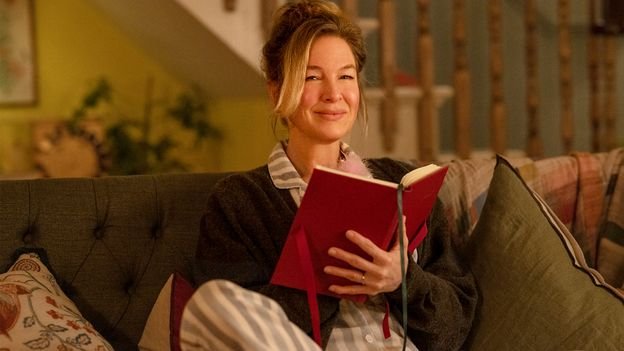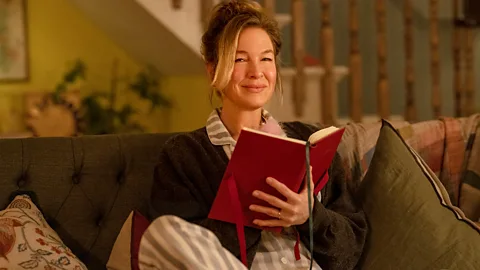 Universal Pictures
Universal PicturesSince Helen Fielding created hapless, middle-class Bridget in the mid-90s, she’s divided opinion. As the fourth film is released, women across different generations discuss her impact.
Fretful hedonist and loyal owner of ungainly knickers, Bridget Jones first appeared in a Nineties newspaper column. Four best-selling books and three record-breaking films later, Helen Fielding’s creation can now be seen in a fourth big-screen adventure and, as the figurehead of a seemingly unstoppable British franchise, is routinely compared to James Bond.
Of course, hapless, middle-class Bridget doesn’t race around saving the world from evildoers. She’s more likely to be found in a London bar, swigging white wine with her garrulous mates. Either that, or lusting after men, traditionally Hugh Grant’s Daniel Cleaver or Colin Firth’s Mark Darcy, though she hasn’t been entirely indifferent to the rest of the globe; in a bid to seem sophisticated and conscience-stricken she once practiced saying the phrase, “Isn’t it terrible about Chechnya?” (in original 2001 film Bridget Jones’s Diary) and another time, out of pure bad luck, wound up in a Thai jail (in 2004’s sequel Bridget Jones: The Edge of Reason). As for kids, they weren’t really on her to-do list until she accidentally got pregnant in her forties (in 2016’s Bridget Jones’s Baby) and spent the next few months wondering if Mark was the dad.
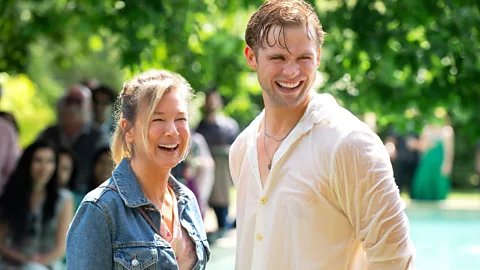 Universal Pictures
Universal PicturesSome view the return of Bridget as dire news for feminism: Bridget-bashers despair of the character’s ditzy fixation on either invasively cheeky or preposterously chivalrous men, not to mention her obsessive calorie-counting. Last year, following the announcement of the latest film, Glamour magazine ran an article saying, “Bridget Jones was toxic – we don’t need her back”, and dubbing her “a dreadful and misogynistic role model”. However, others have said that the new film – in which Bridget gets a 29-year-old boyfriend – is an empowering treat for women. In The Guardian, Hollie Richardson wrote: “It is joyous to see a fifty-something mother enjoying a whirlwind of romance and sex.”
You can’t discuss Bridget Jones without at least mentioning Jane Austen, whose romantic comedies Fielding both cannibalises and mocks. Suffice to say, if you need your widows to be elegant and focused entirely on their children, à la Mrs Dashwood in Sense and Sensibility, then Mad About the Boy is not for you.
Now in her early fifties, Bridget (Renée Zellweger; never better) is still grieving for her beloved Mark (killed by a landmine in Sudan, though still present as a gorgeous ghost) and bringing up the couple’s two children, with the odd bit of help from her wicked ex, Daniel (Grant; saucy, but subtle). Encouraged by her friends to get out more, our heroine goes back to working as a TV producer, joins Tinder, and soon finds herself having lots of excellent sex with a young parks supervisor, Roxster (One Day’s Leo Woodall; disarming), as well as flirting with a sensitive science teacher, Mr Wallaker (Chiwetel Ejiofor; magnetically wry). When things get complicated, Bridget seeks solace in a dodgy serum that’s designed to make her lips appear youthfully plump, which leads to some truly glorious screwball comedy and a stand-out intervention from a bemused gynaecologist, Dr Rawlings (Emma Thompson; crushing it).
What Bridget represents
For film critic Larushka Ivan-Zadeh, Mad About the Boy – as well as marking a rousing return to form for Working Title, the production company known for quintessentially British romantic comedies like Four Weddings and a Funeral – does its central character proud. “Bridget has always been the inner voice of a generation, saying what we all think, but can’t admit, [with our anxieties] that we’re not good-looking enough, that we’ll never win a Nobel Peace Prize,” she says. “I’m not sure if she’s a feminist icon. She aspires to be one, though, and Mad About the Boy offers this all-round portrait of what it means to be a woman. I loved the first film, but the character has really evolved.”
What did Ivan-Zadeh particularly relish about the new film? “That Zellweger/Bridget is allowed to look wrinkly. Am I allowed to say that? Let’s just say other actresses, in the age bracket of late-40s to 50s, are either blessed [with] wearing a lot of makeup, have been expensively shot or had work done. And the effect is that they look incredibly smoothed out. In the posters, yes, Bridget looks smoothed out. But in the film, she looks normal. We’re not being offered Hollywood perfection. It’s wonderful and rare to see a high-profile actress looking like this. It’s brave of Renée – it’s also brave of her people! – to allow her to be seen like this.”
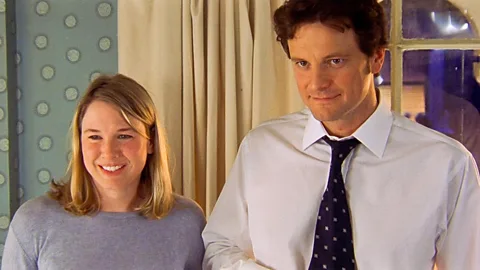 Alamy
AlamyAccording to Ivan-Zadeh, such bravery “says so much about where we are now. Call it the Pamela Anderson effect,” she says, referring to the former Baywatch star, who has reinvented herself in recent years both in real life, with her “make-up free” look on the red carpet, and on screen, with her similarly bare-faced performance, as 57-year old entertainer Shelly Gardner, in The Last Showgirl. “It’s like middle-aged women are now thinking, ‘Oh, I’m allowed to do that!’,” Ivan-Zadeh continues. “Zellweger and Anderson are of course stunning, beautiful women. But in The Last Showgirl and Mad about the Boy, they do not look flawless or pixel-perfect.”
For Ivan-Zadeh, Mad About the Boy’s script works because Bridget is never put on a pedestal: “I love the bit where kids on the school run mistake her for a granny,” she says. Elsewhere, it’s what’s not said, alongside the casting choices, that provides a lovely jolt. “Something we all do is ‘age maths’. I probably shouldn’t admit that, but in the confessional spirit of Bridget Jones, I will. You sit there and obsessively calculate the relative ages of the romantic leads. Obviously, there’s a big gap between Woodall and Zellweger. There’s also a bit of a gap between Ejiofor [47] and Zellweger [55], yet in the scenes between Bridget and Mr Wallaker the age gap isn’t an issue. It’s literally never dwelt on. You just sit there and enjoy it, knowing that historically it used to be very different. It was completely the norm for a female romantic lead to be ten or even 20 years younger than her co-star. It’s pleasing to see that imbalance redressed,” says Ivan-Zadeh.
The new film’s timelines
According to journalist Lizzie Frainier, Bridget Jones has always “broken taboos”. Frainier, who has just written a book about her own love life called Main Character: Lessons from a Real-life Romcom, thinks Mad About the Boy’s age-gap romance couldn’t be more timely. She says, “I’m 31 and around a year ago, I went out with someone who was 29. Small age gap, no? He brought it up ten times! He said I was the oldest woman he’d ever slept with and called me a Cougar. There is so much prejudice out there.” She adds, “I’ve loved Bridget since I found the book, Bridget Jones’s Diary, on my mother’s bookshelf, when I was 13. I’ll never outgrow this character. Obviously she’s always going to be older than me, but I think of her as paving the way.”
Thirty-year-old Olivia Petter, a podcaster and writer whose book, Millennial Love, explores the modern dating scene, agrees that Bridget has a wide fan base amongst thirty-somethings. “Bridget is a heroine for women my age,” she says. “Her scrappy breed of chaos is one many of us can relate to.” She also believes Bridget has “feminist traits”. “She navigates work and motherhood in this new film, and it’s the former that ends up saving her, which I find inspiring.”
Petter draws a link between Bridget’s surging popularity and the ongoing success of the Sex and The City TV sequel, And Just Like That, season three of which is due later this year. “Personally, I love seeing these iconic female characters get older,” Petter says. “We’ve spent way too long fetishising youth and sending the message that a woman’s value, particularly sexual value, is limited to her 20s and 30s.”
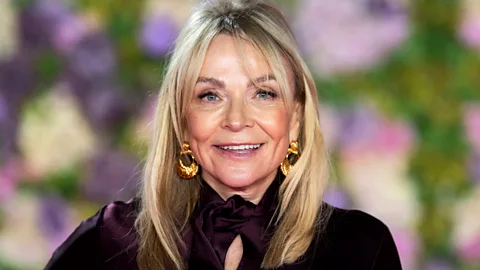 Getty Images
Getty ImagesVictoria Smith, 50-year-old author of Hags: The Demonisation of Middle-Aged Women, is all for celebrating older icons, but sounds a note of caution. She was disheartened by a recent interview in the Guardian with Helen Fielding, in which Fielding said, “Bridget isn’t going to be anyone’s old bat.” Smith exclaims, “Every generation of women thinks ‘Right, we’re not going to age like our mums did!’ But no generation of women were actually old bats. They all had inner lives and desires. They just got sidelined. So let’s not perpetuate that. Let’s not say, ‘You can only have agency and adventures if you’re glamorous’.”
Smith was also annoyed by the trailer for Mad About the Boy, and its focus on the buff bodies of both Mr Wallaker and Roxster. She was especially disturbed by the ogling of Woodall’s character by Bridget’s friends: “Is it equality to show older women objectifying younger men?” That said, Smith admits “because there’s so much hostility towards women of a certain age – you know, all that Karen stuff – I’m actually glad when any middle-aged woman is in the spotlight. And I do feel quite a bit of affection for the character of Bridget, who is at least allowed to air her insecurities. All the focus on body positivity and body neutrality can make women feel ashamed for having anxieties. When I’m the oldest person in the room, I feel self-conscious. I haven’t had treatments, but more and more of my peers have. The truth is, it’s really hard for women to win. I’m on Facebook and you get men talking about Pamela Anderson, saying ‘I can’t believe I used to fancy her’. So, yes, despite my doubts, I’ll go and see the new movie.”
A dissenting view
Twenty-nine-year-old writer and feminist Moya Lothian-McLean, has been anti-Bridget since her teens (“I think she’s rubbish!”), and says nothing could convert her to the cause. What she hates is that Bridget “is useless in every part of her life”, she says – examples of her ineptness in the new film range from her setting a pan of pasta alight to getting stuck up a tree. “They treat her as a walking punchline. Haven’t we got more ideas, in 2025? Are there not other stories about middle-aged women that we can tell?”
Despite the fact that Bridget, in Mad About the Boy, is shown to be a competent TV producer, who knows her stuff about the environment and government policy, Lothian-McLean is still unimpressed. She think that TV portrayals of working women – for example, the Sharon Horgan shows Catastrophe and Motherland – offer insights that are “so much sharper, so much more satirical”.
Lothian-McLean finds it especially infuriating when Bridget is referred to as an “everywoman”, pointing out that Bridget lives in the affluent North London enclave of Hampstead and that her kids go to private school. “Maybe she’s an everywoman for people who live in Hampstead. For that community, I guess, she’s average. But not for the rest of us.” Yet even Lothian-McLean says she’s “bound to see” Mad About the Boy. “My friends are making worrying noises about using our Cineworld pass for it (we go every week).”
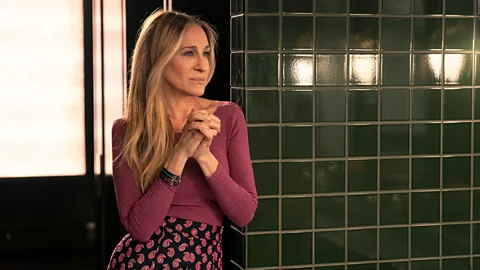 Craig Blankehorn/ Max
Craig Blankehorn/ MaxAre Gen Z girls excited about Bridget? Ivan-Zadeh says that her eldest daughter (13), is desperate to know more about Mad About the Boy (which, by the way, is a certificate 15). “It’s because she’s on TikTok and she’s being told it’s worth seeing.” Ivan-Zadeh believes younger viewers will find Bridget intriguing. “Bridget isn’t spiky, edgy, scary or misanthropic. She’s not in the Fleabag mould. And it’s the right time for that. If the film-makers had made Bridget more like Fleabag it would be quite dating. Bridget’s the kind of female icon we haven’t seen for a while. She’s not a caricature. Though clearly insecure and vulnerable, she tries hard to be caring and supportive. You understand why the men adore her. You understand why her friends and children adore her. She’s just a jolly nice person. To young people, I think, Mad About the Boy will feel quite new.”
Here’s something Gen X, Y and Z can agree on: whether you love, loathe or merely like Bridget, she’s become a must-see.
Bridget Jones: Mad about the Boy is available to stream on Peacock in the US and is out now in cinemas internationally.

